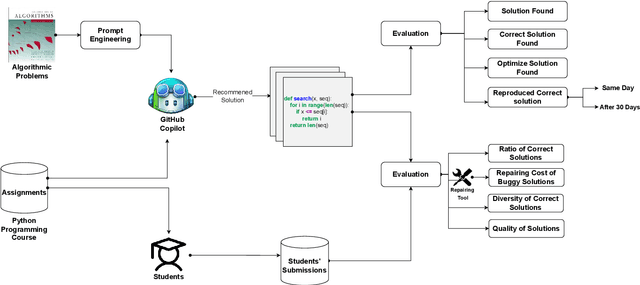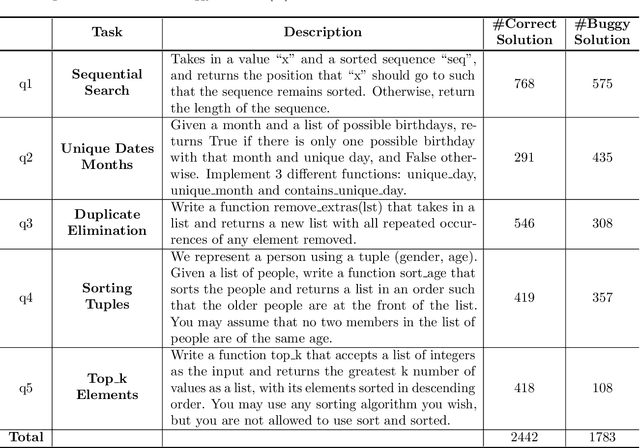GitHub Copilot AI pair programmer: Asset or Liability?
Paper and Code
Jun 30, 2022



Automatic program synthesis is a long-lasting dream in software engineering. Recently, a promising Deep Learning (DL) based solution, called Copilot, has been proposed by Open AI and Microsoft as an industrial product. Although some studies evaluate the correctness of Copilot solutions and report its issues, more empirical evaluations are necessary to understand how developers can benefit from it effectively. In this paper, we study the capabilities of Copilot in two different programming tasks: (1) generating (and reproducing) correct and efficient solutions for fundamental algorithmic problems, and (2) comparing Copilot's proposed solutions with those of human programmers on a set of programming tasks. For the former, we assess the performance and functionality of Copilot in solving selected fundamental problems in computer science, like sorting and implementing basic data structures. In the latter, a dataset of programming problems with human-provided solutions is used. The results show that Copilot is capable of providing solutions for almost all fundamental algorithmic problems, however, some solutions are buggy and non-reproducible. Moreover, Copilot has some difficulties in combining multiple methods to generate a solution. Comparing Copilot to humans, our results show that the correct ratio of human solutions is greater than Copilot's correct ratio, while the buggy solutions generated by Copilot require less effort to be repaired. While Copilot shows limitations as an assistant for developers especially in advanced programming tasks, as highlighted in this study and previous ones, it can generate preliminary solutions for basic programming tasks.
 Add to Chrome
Add to Chrome Add to Firefox
Add to Firefox Add to Edge
Add to Edge